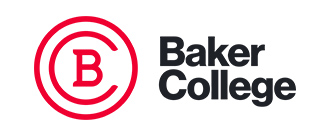The Master of Science in Industrial / Organizational Psychology program at Baker College is designed to look at how patience, analytical thinking, and problem solving could be used to work with others in businesses and communities. Read on to find out more about this program now.
<h2 id="section---FrequentlyAskedQuestions">Frequently Asked Questions</h2>
<h3 id="section---WhatKindOfProgramIsIt">What Kind of Program Is It?</h3>
<p>The Master of Science in Industrial / Organizational Psychology program at Baker College addresses the study of behavior and performance in the workplace and other organizational settings through the application of the theories, methods, and principles of psychology on individuals, teams, and organizations. Students will have the chance to examine psychology history, statistics, and specialized leadership topics, including motivation, learning, and personnel management. In this non-licensure program, students must complete a capstone project in order to graduate. This program is offered online and at select campuses.
</p>
<h3 id="section---WhatAreThePrerequisites">What Are the Prerequisites?</h3>
<p>Individuals interested in this program should already have a bachelor degree in a related area from a regionally accredited college or university. Applicants should have a desire to help people and a good sense for the human mind and human behavior in the working world.
</p>
<h3 id="section---WhatAreTheCourseRequirements">What Are the Course Requirements?</h3>
<p>This Baker College program is made up of a total of at least 57 credit hours. These credit hours are made up entirely of major coursework, including one elective.
</p>
<p><u>Industrial / Organizational Psychology Major Courses</u>
</p>
<p />
<table border="1"><tr><th>Course Code</th><th>Course Title</th></tr>
<tr><td>CGS 501</td><td> Graduate Seminar</td></tr>
<tr><td>PSY 511</td><td> History and Systems in Psychology</td></tr>
<tr><td>PSY 521</td><td> Industrial / Organizational Psychology</td></tr>
<tr><td>PSY 531</td><td> Tests and Measurements</td></tr>
<tr><td>PSY 541</td><td> Statistics and Data Analysis</td></tr>
<tr><td>PSY 551</td><td> Consultation Psychology</td></tr>
<tr><td>PSY 561</td><td> Research Methods</td></tr>
<tr><td>PSY 571</td><td> Psychology of Leadership</td></tr>
<tr><td>PSY 611</td><td> Testing and Assessment in the Workplace</td></tr>
<tr><td>PSY 621</td><td> Psychology of Performance and Motivation</td></tr>
<tr><td>PSY 631</td><td> Psychology of Cognition and Learning</td></tr>
<tr><td>PSY 641</td><td> Psychology of Personnel Management and Human Resources</td></tr>
<tr><td>PSY 651</td><td> Social Psychology</td></tr>
<tr><td>PSY 699</td><td> Integrative Capstone in Psychology</td></tr>
<tr><td><b>Select One Course from the Following:</b></td><td /></tr>
<tr><td>PSY 661</td><td> Evidence Based Coaching</td></tr>
<tr><td>PSY 671</td><td> Industrial / Organizational Psychology Residency</td></tr>
</table><h3 id="section---WhatCouldIDoAfterIGraduate">What Could I Do After I Graduate?</h3>
<h4 id="section---CareerOpportunities">Career Opportunities</h4>
<p>After graduating from this program, students may be able to seek entry-level employment as well as positions that could offer greater challenges. These opportunities might involve working directly with people or could be more research-related. The interpersonal and analytical subjects this program is designed to cover could prove useful in many different work environments, including business offices, corporations, educational institutions, government agencies, or business consulting firms.
</p>
<p>Potential career opportunities include but are not limited to:
</p>
<ul><li>Business Consultant
</li><li>Employee Training Manager
</li><li>Human Resources Director
</li><li>Marketing Researcher
</li><li>Personnel Recruiter</li></ul>


.svg)


